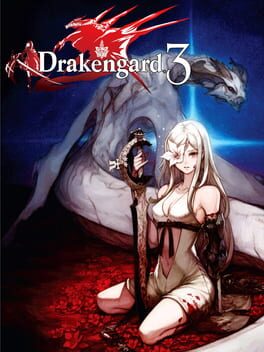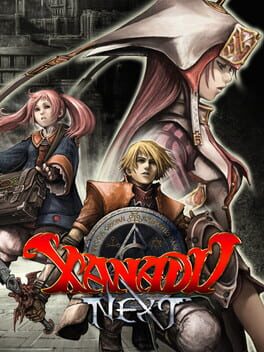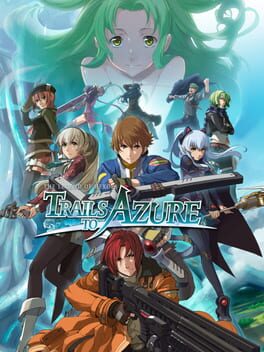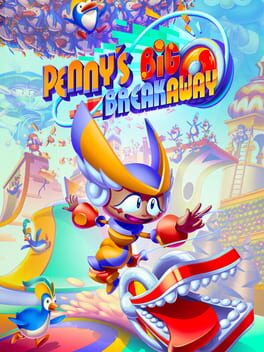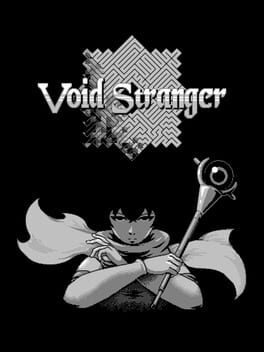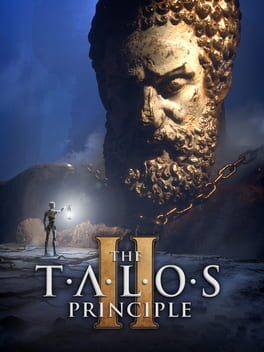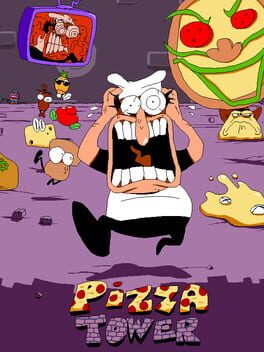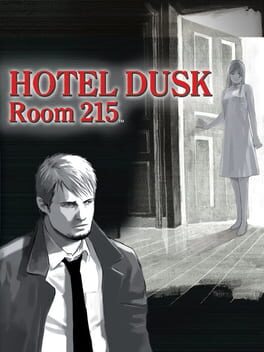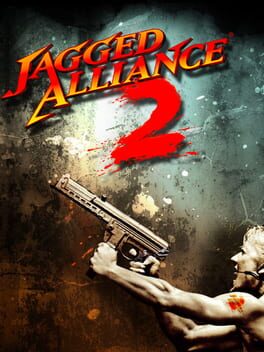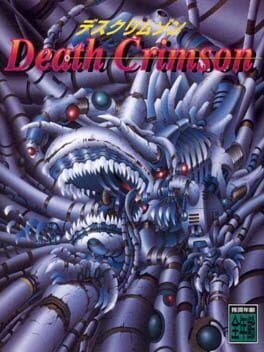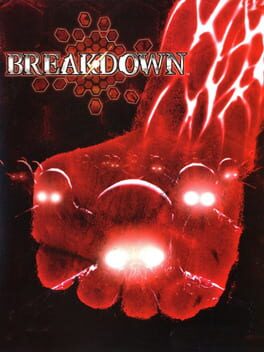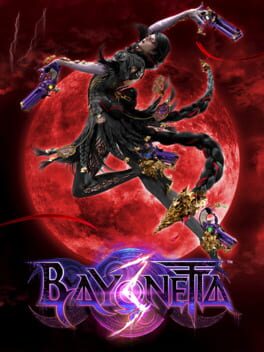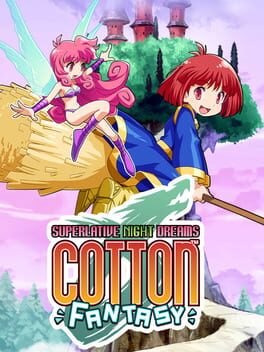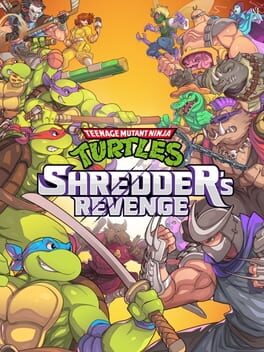xaerock
25 reviews liked by xaerock
Drakengard 3
2013
Played on RPCS3 at 4k 60fps, so no performance issues on my end.
The gameplay's better than Drakengard 1, for sure. The lock-on is more competent, but because of the increased size and movement of enemies, and the way they're mixed and match, you'll probably have a harder time seeing. There's also a perfect-block thrown in, and certain encounters basically force it to be mandatory. Bosses won't sit still for your combos without doing one, and it instantly puts an end to the ridiculous poise and defense-buffs possessed enemies get. Normal combat escalates quite a bit in difficulty. The side-missions unlocked in branch D all but necessitate the infinite blood outfit (which in turn gives you infinite use of the game's powered up mode which speeds you up, slows everyone down, and increases your attack quite a bit).
The weapon system returns, but getting them is quite easy this time. Instead of having to hit arbitrary and cryptic sub-mission goals, they're in chests lying around at all times, given for side-missions, or bought in the store. Upgrading them is a monstrous chore though. Instead of it just being based on kill count, it requires an unnaturally high amount of gold. You will be grinding for a long time if you want this done.
Dragon combat, I'd say, is a downgrade. Instead of the flight-simish combat of Drakengard 1, you're either in basic rail-shooter stages or in simplistic faux-action combat with a generous lock-on.
The story, once again for a Taro game, reveals itself as secretly interesting if you can stick it out. The first branch was rather miserable to me as it was just antisocial anime-dialogue getting spewed by a bunch of stupid people for hours. It made me appreciate the dull medieval fantasy storytelling of the first game in hindsight. Eventually, you find out a weird robot can manifest hypothetical branches where things turn out differently, and this robot basically trial-and-errors you into branch D so you can actually succeed with your goal. This kinda meta-storytelling renders every ending equally valid in a way other "open to interpretation" stories don't by highlighting the divergences so literally.
I did want to go over the rhythm section that closes off Branch D. It's weird to compare it to the similar section that ended Drakengard 1. It's "easier" as far as the patterns go, but it's grueling as far as its length and timing those inputs. I thought it was pretty fun, but I like rhythm games a lot. YMMV
I don't think it gets interesting enough to justify the curious, but there are certainly worse B-games to play through.
2/5
The gameplay's better than Drakengard 1, for sure. The lock-on is more competent, but because of the increased size and movement of enemies, and the way they're mixed and match, you'll probably have a harder time seeing. There's also a perfect-block thrown in, and certain encounters basically force it to be mandatory. Bosses won't sit still for your combos without doing one, and it instantly puts an end to the ridiculous poise and defense-buffs possessed enemies get. Normal combat escalates quite a bit in difficulty. The side-missions unlocked in branch D all but necessitate the infinite blood outfit (which in turn gives you infinite use of the game's powered up mode which speeds you up, slows everyone down, and increases your attack quite a bit).
The weapon system returns, but getting them is quite easy this time. Instead of having to hit arbitrary and cryptic sub-mission goals, they're in chests lying around at all times, given for side-missions, or bought in the store. Upgrading them is a monstrous chore though. Instead of it just being based on kill count, it requires an unnaturally high amount of gold. You will be grinding for a long time if you want this done.
Dragon combat, I'd say, is a downgrade. Instead of the flight-simish combat of Drakengard 1, you're either in basic rail-shooter stages or in simplistic faux-action combat with a generous lock-on.
The story, once again for a Taro game, reveals itself as secretly interesting if you can stick it out. The first branch was rather miserable to me as it was just antisocial anime-dialogue getting spewed by a bunch of stupid people for hours. It made me appreciate the dull medieval fantasy storytelling of the first game in hindsight. Eventually, you find out a weird robot can manifest hypothetical branches where things turn out differently, and this robot basically trial-and-errors you into branch D so you can actually succeed with your goal. This kinda meta-storytelling renders every ending equally valid in a way other "open to interpretation" stories don't by highlighting the divergences so literally.
I did want to go over the rhythm section that closes off Branch D. It's weird to compare it to the similar section that ended Drakengard 1. It's "easier" as far as the patterns go, but it's grueling as far as its length and timing those inputs. I thought it was pretty fun, but I like rhythm games a lot. YMMV
I don't think it gets interesting enough to justify the curious, but there are certainly worse B-games to play through.
2/5
Dragon's Dogma II
2024
Everything wrong (or right) with Dragon's Dogma 2:
Fashion's Dogma is dead: Under-armor is completely gone (both the chest and legs slot) and so are the gloves. Instead, all you get are a slim number of accessories that you can wear in tandem with your helmet. The cloaks are also unusually large, but their ineffectiveness makes them the most interchangeable slot. The excuse we got was that there would be more armors to choose from, so did we? Hardly, the original game had 68 chest pieces for instance, while this one has 90. But when you include the under-armor, you have 124 pieces to choose from. Now let's include the 70 glove pieces, that's 194 chest options. See what I mean? This game has 68 pieces of the leg armor and the original had 79, when you include under-armor, you have 111. Helmets are comparable in quantity, there's 88 in the original and and 82 here, 97 if you include accessories. Clearly, armor choice is a massive downgrade this time around and it's unjustifiable.
Vocations are disappointing: They just had to restrict this system as well. Is it really okay to only have ten unlockable skills, (plus one mastery skill), when we can't even use two weapons anymore? Especially with so many skills returning, it's a real shame they couldn't come up with more. You only get to unlock 5 augments per class as well; down from six, most of which are useless. Like dealing 5% more damage when hitting a target's vitals or reducing the time it takes to revive a Pawn by 1 second. Not to mention, the game won't even tell you what the values are (that applies to rings as well). The archer is especially affected, since four of the skills require their respective arrow types when they used to require none. You can no longer equip arrows to use on any skill anymore, nor are there status inflicting skills like Invasive Arrow. Mages used to be able to aim their spells and pinpoint a location on the ground, now it's forcibly automatic. When it comes to new classes, trickster makes a jarring addition to the roster because they can't deal any damage. Why isn't this a pawn class? You're going to be much more effective at dealing damage than any pawn. Wayfarer is much worse than the comparable assassin and should have been an opportunity to combine weapons. Instead, you have the ability to switch between two or three vocations, but you only get three ability slots and worse stats. At least the Mystic Spearhand was incredibly unique and fun to play, it's really the only worthwhile addition. I've also got to point out that all the hybrid vocations involve magic, the thief got nothing to mix with.
The gameplay is excellent: Existing skills have been given additional flair and the physics engine will ensure that you can launch your foes straight into the stratosphere. It's very satisfying and fun, especially thanks to the improved AI. Enemies are much more aggressive, have better tracking, quickly gap close, can stunlock you to death, and will chase you to the ends of the earth. They can be genuinely terrifying and you will need your pawns to survive. Going solo is no longer a viable option, especially when most of the classes don't have a basic dodge. Maybe every single hit shouldn't stagger you though, you can only mitigate knockdowns. Most important of all, they fixed leveling stats. They're tied exclusively to your vocation, so there's no overlap. The max level is no longer 200 as well, now it's 999; which would have been cool if there were high level monsters.
The world is epic! Exploration is hollow: It's massive and sprawling, you'll really feel like you're on some sort of grand adventure; but it's landscapes are realistic to a fault; detrimental to the real meat of the game. For instance, every single dungeon is cave and only a handful of them are going to take you a significant amount of time to explore. You're not going to find anything like Bluemoon Tower, the Catacombs, or Watergod's Altar. Puzzles are gone, levers are gone, anything that could have made the locations district is largely missing. You can even see it in their names: "Strange Corridor", "Hidden Cavern", "Forgotten Tunnel" to name a few. Once more, they're not so rewarding either. There are chests absolutely everywhere, but more often than not, you're going to find a wakestone shard or an item you can already buy at the region's blacksmith. There are duplicates of several weapons and armors as well, why? Notable exceptions exist, but they're few and far between. If there were more armor slots to play with, this wouldn't have been a problem. Maybe focus on filling the world with quality content instead of simply making it large, Skyrim was 12 years ago. To make matters worse, enemy variety is about the same as the first game, just spread across a greater distance. If you were hoping for new additions, all you really get are variants of existing ones, slimes, and one-off bosses. Considering an encounter happens about every 15 seconds, it can get pretty exhausting.
Travelling could have been great: The addition of oxcarts is a welcome one, it's so nice to have more options beyond walking and ferrystones. However, the cart moves so slowly that I'm always opting to "doze off", which usually involves an enemy encounter along the way. Problem is, oxcarts are very destructible; I don't even think it's viable to take them without the time skip, because there are so many enemy encounters along the way. The addition of camping is great because you don't have to walk back to an inn whenever night arises. I do think their spread is too generous though, you'll have an easy time finding one when the need arises. Riftstones are everywhere too, so losing a pawn is hardly detrimental. What really bothers me are the portcrystals. Why are there only two naturally occurring ones in the entire game? Here are the places that should have one but don't: Melve, Bakbattahl, Rest Town, Sacred Arbor, Volcanic Island Camp. It's ridiculous, not to mention the non-existence of an eternal ferrystone, which was probably an excuse to fill up chests. Oh, and there's a portcrystal DLC, maybe that's why Bakbattahl doesn't have one.
Questing is better, but the quests aren't good: Quests are no longer tied to stages in the story, so you don't have to worry about automatically failing them. Timed quests will explicitly tell you in the UI, but I'd appreciate having a day counter. Failure was touted as a possibility, but it's not really something to worry about. They're usually started by encounters (you'll run into an NPC or they'll walk up to you) making them feel like a natural occurrence in the world. I appreciate how cryptic they can be, but sometimes the descriptors are unhelpful and you'll have to rely on a pawn's knowledge. Where they falter is in interest, because there aren't any exciting locations to unlock or exclusive rewards. I couldn't tell you a single memorable one, they all felt like a chore.
The plot is dreadful: The main story might just be the laziest I've ever seen in an RPG. It's even more of an afterthought than the first game. All that intrigue and buildup about the false sovran (which is really just a bunch of half-baked stealth missions) is squandered because of some Godsway MacGuffin. Which I thought was just the beginning of the story, turns out it's actually the half-way point. Your search for answers leads you to Bakbattahl, but the actual region is irrelevant to the plot. You'll head to an alter that raises from the sea, but it isn't a dungeon, just a cave with an elevator... Once you reach Moonglint Tower, it's just an elevator again. They seriously couldn't put a single fucking dungeon in this game to save their lives. Once you reach the top, bootleg Jafar accidentally summons the wrong dragon and it ends about the same way as the first game. Only this time, the post-game sucks bigtime. We're talking time limits, zero saves, three main quests, an obsession with the color red, and no dungeons. But don't worry, it's all doable in under 4 hours and the ending is just a hint at future DLC.
I have a very hard time accepting that this was Itsuno's true vision for Dragon's Dogma because it's worse than Dark Arisen. Not only does it fail to adequately improve on the original's shortcomings, in many ways it has doubled down on them. Meanwhile, its best aspects have been stripped away. Yet again, there's a great system buried beneath a pile of trash, only this time they took more pages from Ubisoft instead of lighting the book on fire. It's emblematic of everything wrong with modern gaming and this massive open world trend needs to stop already.
Fashion's Dogma is dead: Under-armor is completely gone (both the chest and legs slot) and so are the gloves. Instead, all you get are a slim number of accessories that you can wear in tandem with your helmet. The cloaks are also unusually large, but their ineffectiveness makes them the most interchangeable slot. The excuse we got was that there would be more armors to choose from, so did we? Hardly, the original game had 68 chest pieces for instance, while this one has 90. But when you include the under-armor, you have 124 pieces to choose from. Now let's include the 70 glove pieces, that's 194 chest options. See what I mean? This game has 68 pieces of the leg armor and the original had 79, when you include under-armor, you have 111. Helmets are comparable in quantity, there's 88 in the original and and 82 here, 97 if you include accessories. Clearly, armor choice is a massive downgrade this time around and it's unjustifiable.
Vocations are disappointing: They just had to restrict this system as well. Is it really okay to only have ten unlockable skills, (plus one mastery skill), when we can't even use two weapons anymore? Especially with so many skills returning, it's a real shame they couldn't come up with more. You only get to unlock 5 augments per class as well; down from six, most of which are useless. Like dealing 5% more damage when hitting a target's vitals or reducing the time it takes to revive a Pawn by 1 second. Not to mention, the game won't even tell you what the values are (that applies to rings as well). The archer is especially affected, since four of the skills require their respective arrow types when they used to require none. You can no longer equip arrows to use on any skill anymore, nor are there status inflicting skills like Invasive Arrow. Mages used to be able to aim their spells and pinpoint a location on the ground, now it's forcibly automatic. When it comes to new classes, trickster makes a jarring addition to the roster because they can't deal any damage. Why isn't this a pawn class? You're going to be much more effective at dealing damage than any pawn. Wayfarer is much worse than the comparable assassin and should have been an opportunity to combine weapons. Instead, you have the ability to switch between two or three vocations, but you only get three ability slots and worse stats. At least the Mystic Spearhand was incredibly unique and fun to play, it's really the only worthwhile addition. I've also got to point out that all the hybrid vocations involve magic, the thief got nothing to mix with.
The gameplay is excellent: Existing skills have been given additional flair and the physics engine will ensure that you can launch your foes straight into the stratosphere. It's very satisfying and fun, especially thanks to the improved AI. Enemies are much more aggressive, have better tracking, quickly gap close, can stunlock you to death, and will chase you to the ends of the earth. They can be genuinely terrifying and you will need your pawns to survive. Going solo is no longer a viable option, especially when most of the classes don't have a basic dodge. Maybe every single hit shouldn't stagger you though, you can only mitigate knockdowns. Most important of all, they fixed leveling stats. They're tied exclusively to your vocation, so there's no overlap. The max level is no longer 200 as well, now it's 999; which would have been cool if there were high level monsters.
The world is epic! Exploration is hollow: It's massive and sprawling, you'll really feel like you're on some sort of grand adventure; but it's landscapes are realistic to a fault; detrimental to the real meat of the game. For instance, every single dungeon is cave and only a handful of them are going to take you a significant amount of time to explore. You're not going to find anything like Bluemoon Tower, the Catacombs, or Watergod's Altar. Puzzles are gone, levers are gone, anything that could have made the locations district is largely missing. You can even see it in their names: "Strange Corridor", "Hidden Cavern", "Forgotten Tunnel" to name a few. Once more, they're not so rewarding either. There are chests absolutely everywhere, but more often than not, you're going to find a wakestone shard or an item you can already buy at the region's blacksmith. There are duplicates of several weapons and armors as well, why? Notable exceptions exist, but they're few and far between. If there were more armor slots to play with, this wouldn't have been a problem. Maybe focus on filling the world with quality content instead of simply making it large, Skyrim was 12 years ago. To make matters worse, enemy variety is about the same as the first game, just spread across a greater distance. If you were hoping for new additions, all you really get are variants of existing ones, slimes, and one-off bosses. Considering an encounter happens about every 15 seconds, it can get pretty exhausting.
Travelling could have been great: The addition of oxcarts is a welcome one, it's so nice to have more options beyond walking and ferrystones. However, the cart moves so slowly that I'm always opting to "doze off", which usually involves an enemy encounter along the way. Problem is, oxcarts are very destructible; I don't even think it's viable to take them without the time skip, because there are so many enemy encounters along the way. The addition of camping is great because you don't have to walk back to an inn whenever night arises. I do think their spread is too generous though, you'll have an easy time finding one when the need arises. Riftstones are everywhere too, so losing a pawn is hardly detrimental. What really bothers me are the portcrystals. Why are there only two naturally occurring ones in the entire game? Here are the places that should have one but don't: Melve, Bakbattahl, Rest Town, Sacred Arbor, Volcanic Island Camp. It's ridiculous, not to mention the non-existence of an eternal ferrystone, which was probably an excuse to fill up chests. Oh, and there's a portcrystal DLC, maybe that's why Bakbattahl doesn't have one.
Questing is better, but the quests aren't good: Quests are no longer tied to stages in the story, so you don't have to worry about automatically failing them. Timed quests will explicitly tell you in the UI, but I'd appreciate having a day counter. Failure was touted as a possibility, but it's not really something to worry about. They're usually started by encounters (you'll run into an NPC or they'll walk up to you) making them feel like a natural occurrence in the world. I appreciate how cryptic they can be, but sometimes the descriptors are unhelpful and you'll have to rely on a pawn's knowledge. Where they falter is in interest, because there aren't any exciting locations to unlock or exclusive rewards. I couldn't tell you a single memorable one, they all felt like a chore.
The plot is dreadful: The main story might just be the laziest I've ever seen in an RPG. It's even more of an afterthought than the first game. All that intrigue and buildup about the false sovran (which is really just a bunch of half-baked stealth missions) is squandered because of some Godsway MacGuffin. Which I thought was just the beginning of the story, turns out it's actually the half-way point. Your search for answers leads you to Bakbattahl, but the actual region is irrelevant to the plot. You'll head to an alter that raises from the sea, but it isn't a dungeon, just a cave with an elevator... Once you reach Moonglint Tower, it's just an elevator again. They seriously couldn't put a single fucking dungeon in this game to save their lives. Once you reach the top, bootleg Jafar accidentally summons the wrong dragon and it ends about the same way as the first game. Only this time, the post-game sucks bigtime. We're talking time limits, zero saves, three main quests, an obsession with the color red, and no dungeons. But don't worry, it's all doable in under 4 hours and the ending is just a hint at future DLC.
I have a very hard time accepting that this was Itsuno's true vision for Dragon's Dogma because it's worse than Dark Arisen. Not only does it fail to adequately improve on the original's shortcomings, in many ways it has doubled down on them. Meanwhile, its best aspects have been stripped away. Yet again, there's a great system buried beneath a pile of trash, only this time they took more pages from Ubisoft instead of lighting the book on fire. It's emblematic of everything wrong with modern gaming and this massive open world trend needs to stop already.
Xanadu Next
2005
One of the best games I've played, personally reminded me of Dark Souls. Not because of the combat or the difficulty, but because of the atmosphere and the way Xanadu Next delivers its story (it's via items you actively have to seek out while exploring). Thankfully, it remains still very good.
Special mention to the final dungeon which is one of the best I've played. 10/10, would get lost in again
FOR STEAM DECK USERS: Make sure to set one of your trackpads to a mouse. This will make menuing MUCH easier, while still keeping the combat somewhat comfortable to use.
Special mention to the final dungeon which is one of the best I've played. 10/10, would get lost in again
FOR STEAM DECK USERS: Make sure to set one of your trackpads to a mouse. This will make menuing MUCH easier, while still keeping the combat somewhat comfortable to use.
Cleared on Hard, finished all side-quests. Finished it a while ago, but it's still stuck in my craw, so I feel like writing a review. I'm not going to spoil anything directly but I'm definitely giving impressions of the whole game, so if you're particularly sensitive to spoilers maybe dip now.
This was obviously lovely in a lot of ways, but I think this is where I get off the Trails train for a while. Trails has never been big on stakes, but the lack of lethality to anything in Zero and Azure is just devastating. There's no weight to this anymore. The big scary villains aren't scary because I know no one's ever ever going to die.
It's especially weird because Zero gets most of its resonance from paying off an extremely dark character thread set up in 3rd. You'd think they'd realize it's good to have some edge every now and then in a massive fantasy epic. But if there was any edge left in Zero then it's completely gone in Azure; this is one of the most bloodless stories ostensibly about revolution I've ever seen. The new emphasis on light dating sim mechanics means we also don't get a strong core romance like in Sky. I didn't get to see any of the meager sparks between Elie and Lloyd pay off because I didn't buy her enough stuffed animals to put in her room, whoops.
It's a shame because the character writing is as lovely as ever. I finally upped the difficulty to Hard for this one and I should've done it sooner, it feels amazing and the bosses are super-chunky and fun to unravel. The music and art and setting texture are as gorgeous as always. But at this point Trails is a romance where nobody fucks and a war epic where nobody dies. I've lost my patience for that for the moment.
This was obviously lovely in a lot of ways, but I think this is where I get off the Trails train for a while. Trails has never been big on stakes, but the lack of lethality to anything in Zero and Azure is just devastating. There's no weight to this anymore. The big scary villains aren't scary because I know no one's ever ever going to die.
It's especially weird because Zero gets most of its resonance from paying off an extremely dark character thread set up in 3rd. You'd think they'd realize it's good to have some edge every now and then in a massive fantasy epic. But if there was any edge left in Zero then it's completely gone in Azure; this is one of the most bloodless stories ostensibly about revolution I've ever seen. The new emphasis on light dating sim mechanics means we also don't get a strong core romance like in Sky. I didn't get to see any of the meager sparks between Elie and Lloyd pay off because I didn't buy her enough stuffed animals to put in her room, whoops.
It's a shame because the character writing is as lovely as ever. I finally upped the difficulty to Hard for this one and I should've done it sooner, it feels amazing and the bosses are super-chunky and fun to unravel. The music and art and setting texture are as gorgeous as always. But at this point Trails is a romance where nobody fucks and a war epic where nobody dies. I've lost my patience for that for the moment.
I'm really surprised how negative the reviews are for this here because I had a great time with this. I'll chalk it up to the game being admittedly a little janky, but not to the extent, IMO, being described here.
I also think the pedigree of the game makes it seem like it's going to inherently be a "speedy" platformer when it's maybe not. Like there's definitely the capacity to go fast here, and it was built with that in mind, but in a lot of cases you're poking around looking for stuff or doing little tasks for NPCs or whatever, and the movement mechanics have a little bit of a learning curve that has to be overcome before you can really move quickly, so maybe some people are feeling like they got bait-and-switched? But once you have your head wrapped around and are flying thru using the full bag of tricks it's a ton of fun.
I will say that after a couple days of sustained play I began to find the aesthetic and music in the game kind of grating and the sequence in the last boss where you're riding up the ramp has a whirling camera that makes the correct inputs unclear and lead to a frustrating number of failures. Putting all that aside, this is a short sweet game with movement mechanics satisfying enough that I know I'll come back and have some fun blasting through now and again and that's I was looking for.
I also think the pedigree of the game makes it seem like it's going to inherently be a "speedy" platformer when it's maybe not. Like there's definitely the capacity to go fast here, and it was built with that in mind, but in a lot of cases you're poking around looking for stuff or doing little tasks for NPCs or whatever, and the movement mechanics have a little bit of a learning curve that has to be overcome before you can really move quickly, so maybe some people are feeling like they got bait-and-switched? But once you have your head wrapped around and are flying thru using the full bag of tricks it's a ton of fun.
I will say that after a couple days of sustained play I began to find the aesthetic and music in the game kind of grating and the sequence in the last boss where you're riding up the ramp has a whirling camera that makes the correct inputs unclear and lead to a frustrating number of failures. Putting all that aside, this is a short sweet game with movement mechanics satisfying enough that I know I'll come back and have some fun blasting through now and again and that's I was looking for.
Tevi
2023
Tevi is a great metroidvania in its own right, with strong level design and great combat. But the game's much greater focus on story did not do it any favors. Every boss and ability is locked behind plot progression, which resulted in a very linear experience, with little-to-no sequence breaking, and unrewarding backtracking. Worst of all, it wasn't even worth it as the story is so thoroughly unengaging it's unreal, tanking the game's pacing with copious amounts of infodumps.
It's pretty tough to follow up an act as phenomenal as Rabi-Ribi, but Tevi sure did try.
It's pretty tough to follow up an act as phenomenal as Rabi-Ribi, but Tevi sure did try.
Void Stranger
2023
The first Talos Principle is still one of my favourite games of all time, which is why I was very excited for the announcement of a sequel. The puzzle elements of the first installment were difficult, and therefore so satisfying to solve. The philosophical elements were also well-presented, but they were not my main reason for loving the game.
The Talos Principle II is a great sequel to the first, in that it introduces an insane amount of new puzzle mechanics. I was incredibly excited to see how they would all combine, to create puzzles just as mind-melting as TP1 and its DLC.
Every region introduces at least 1 new main mechanic, and every one of the 8 puzzles in the region shows off the unique applications for that mechanic. Gradually, the game builds up your arsenal, and does so quite well if you follow along with the story and numbering of the puzzles. However, the scale of the main puzzles remained quite small for some reason, making them easy to solve (at least to me).
The gold puzzles were more of a challenge for sure, which are only unlocked after completing every normal puzzle available. But there are only 12 of them, and even in these puzzles it felt like the mechanics were never really combined very well. Why not create some puzzles that use all mechanics? Or throw some curveballs into the mix by showing off some hidden qualities of items, like the DLC of the first game did? Frankly, I was left a bit dissatisfied, since there was really only 1 puzzle I had to think about for more than 15 minutes. Hopefully the developers will bring out some new content in the future that utilises much more of the awesome item capabilities than the base game does.
Now to move on to the story: I think the developers missed the mark a bit on the story of TP2. What made the first game so magical, was the mystical and tranquil wonderment of its world, coupled with atmospheric visuals and music. The visuals are definitely still there in TP2, but it feels like the developers wanted to shove some epic in there, even though this is not why most of the audience became a fan of the first game. In TP, you were allowed to explore and read philosophy however much you wanted. If you were just there for the puzzles, nothing would hold you back. However, in TP2, you're constantly bombarded with cutscenes, forced conversations and a lot of background babbling that I frankly wasn't really that interested in. Had I been given the choice to approach the story in my own way, I would have found it a lot more interesting. In addition, a lot of the calm magic of the first game felt lost to the grandeur of TP2, both visually and auditorily. Megastructures, datastreams, never before seen physics...I would have preferred a more introspective approach than the science fiction of TP2.
Next to this, Damjan Mravunac did a fantastic job on the OST once again, as it was very well fit to the atmosphere and story of the game. I will still listen to the OST of TP more than TP2, because it feels less bombastic and heroic, but I liked it nonetheless.
Lastly, I thought the ending I got was just exceptional. It tied the knot of the story, and had some of the best visuals I have ever seen in a videogame.
Overall, my enjoyment of TP2 was never really hampered by the developmental approach. Having said so, I highly recommend people to check out TP first. Especially its DLC, called Road to Gehenna, is an awesome treat for puzzle fans! If you liked the first game, I am sure you will like the second as well, even if you don't care much for the conversations the game has to offer. After all, you are still able to skip anything that doesn't interest you.
The Talos Principle II is a great sequel to the first, in that it introduces an insane amount of new puzzle mechanics. I was incredibly excited to see how they would all combine, to create puzzles just as mind-melting as TP1 and its DLC.
Every region introduces at least 1 new main mechanic, and every one of the 8 puzzles in the region shows off the unique applications for that mechanic. Gradually, the game builds up your arsenal, and does so quite well if you follow along with the story and numbering of the puzzles. However, the scale of the main puzzles remained quite small for some reason, making them easy to solve (at least to me).
The gold puzzles were more of a challenge for sure, which are only unlocked after completing every normal puzzle available. But there are only 12 of them, and even in these puzzles it felt like the mechanics were never really combined very well. Why not create some puzzles that use all mechanics? Or throw some curveballs into the mix by showing off some hidden qualities of items, like the DLC of the first game did? Frankly, I was left a bit dissatisfied, since there was really only 1 puzzle I had to think about for more than 15 minutes. Hopefully the developers will bring out some new content in the future that utilises much more of the awesome item capabilities than the base game does.
Now to move on to the story: I think the developers missed the mark a bit on the story of TP2. What made the first game so magical, was the mystical and tranquil wonderment of its world, coupled with atmospheric visuals and music. The visuals are definitely still there in TP2, but it feels like the developers wanted to shove some epic in there, even though this is not why most of the audience became a fan of the first game. In TP, you were allowed to explore and read philosophy however much you wanted. If you were just there for the puzzles, nothing would hold you back. However, in TP2, you're constantly bombarded with cutscenes, forced conversations and a lot of background babbling that I frankly wasn't really that interested in. Had I been given the choice to approach the story in my own way, I would have found it a lot more interesting. In addition, a lot of the calm magic of the first game felt lost to the grandeur of TP2, both visually and auditorily. Megastructures, datastreams, never before seen physics...I would have preferred a more introspective approach than the science fiction of TP2.
Next to this, Damjan Mravunac did a fantastic job on the OST once again, as it was very well fit to the atmosphere and story of the game. I will still listen to the OST of TP more than TP2, because it feels less bombastic and heroic, but I liked it nonetheless.
Lastly, I thought the ending I got was just exceptional. It tied the knot of the story, and had some of the best visuals I have ever seen in a videogame.
Overall, my enjoyment of TP2 was never really hampered by the developmental approach. Having said so, I highly recommend people to check out TP first. Especially its DLC, called Road to Gehenna, is an awesome treat for puzzle fans! If you liked the first game, I am sure you will like the second as well, even if you don't care much for the conversations the game has to offer. After all, you are still able to skip anything that doesn't interest you.
Talos 1 is perhaps my favorite puzzle game of all time. The rich, primarily implicit storytelling interspersed with fascinatingly elegant puzzle design gave me something I've been looking for in art for a long time, and have yet to find elsewhere. I've been following this game's development process since it was first unveiled in May of this year. It seemed shocking to me that they actually met the 2023 launch date, and approaching release I became very excited that this could be a new addition to my list of favorites. Unfortunately, I fear it may have been slightly undercooked for my liking.
Nearly every aspect of this game is a significant step down from the first game. Not necessarily bad, but this game proposes fundamental alterations rather than small revisions to a system that was extremely well thought out, with some jank execution in previous installments. The stars, for example, are completely neutered from the incredibly unique outside the box thinking they previously required of the player and are now reduced to menial scavenger hunts once you become accustomed to the gameplay loop. Can you find the sprite? Can you find the incredibly conspicuous switches scattered around the map? Can you find the connector we hid and then find the dashed lines crossing the sky?
The puzzles aren't much better, if I'm being honest. The best puzzles in the game are unilaterally hidden behind the gold doors at the end of the game. In other words, they require sitting through 120 puzzles that are tantamount to tutorials for different gameplay objects interacting before the player is actually tasked to use critical thought to come up with a unique solution -- something that should be expected of every puzzle game from the very beginning. Even if you disagree with me that the game over-tutorializes and refuses to let the players think for themselves, it's impossible to deny how utterly easy the late game of TTP2 is compared to the late game of TTP1 or any of Road to Gehenna.
In some discussions with other friends who are also Talosheads, I heard the phrase "bringing Talos to the masses" stated at one point. I definitely get what they meant -- Talos 2 has a lot of AAA cultural benchmarks that appeal to people who think the puzzle genre might not be for them -- but I really don't think anything about the first game is necessarily unapproachable. The game certainly does challenge the player, yes, but Talos 1 is extremely easy to comprehend given its limited kit of tools. There are 6 gameplay elements, and given how quickly it exhausts the basic tech one needs to know to solve late game puzzles, it has to rely on amping up the difficulty much earlier, and in a way that feels extremely natural. The second game does not do this. Every world is fundamentally a tutorial for the Object Of The Week and the caveats it proposes for other items. It introduces a new object per world so as soon as you finish the first 10 puzzles that feature it, it's gone. The game then requires you to recall everything you learned about the object in question at the very end of the game (FOR ONE PUZZLE) for completionist credit in a way that I find rather disconcerting and stilted.
The puzzles aren't doing much for me, but I'm at least able to take some joy out of the plot, even when it's completely baffling and stupid. One of those aforementioned cultural AAA benchmarks that I find most present throughout the game is the quippy Whedonisms and banter with characters. I do enjoy some of the characters, Byron and Alcatraz especially, for their realistic depictions of various political extremes in a way that does not come off as remotely hamfisted or meanspirited. And I especially enjoy Thecla for the fact that she is an incredibly meanspirited representation of dogmatic religious zealots. The rest I can kind of take or leave. The primary twist and ending are fucking dumb, I'm so sorry. I completely lost interest when all we were doing was talking about Miranda, Cornelius, and Athena. They are non-characters as far as I'm concerned, despite the fact that I find Athena's depiction in TTP1 to be really inspiring and life-affirming (she might be my favorite protagonist in media, period). It's just trying too hard to be meaningful and explain to me why it is meaningful, when the first game had the formula figured out and was able to handpick other readings to convey ultimately the same message about self-actualization and what it means to be a human in a way that feels much, much less forced.
I think that's ultimately my problem with this game. It tries to take far too many liberties that damage a perfectly functional system, while also rehashing many of the same ideas from the first game in a way that feels ultimately kind of non-transformative and extremely bloated, not just in scope of plot and the ideas it conveys, but also in the amount of content one must trudge through to reach anything worthwhile.
Nearly every aspect of this game is a significant step down from the first game. Not necessarily bad, but this game proposes fundamental alterations rather than small revisions to a system that was extremely well thought out, with some jank execution in previous installments. The stars, for example, are completely neutered from the incredibly unique outside the box thinking they previously required of the player and are now reduced to menial scavenger hunts once you become accustomed to the gameplay loop. Can you find the sprite? Can you find the incredibly conspicuous switches scattered around the map? Can you find the connector we hid and then find the dashed lines crossing the sky?
The puzzles aren't much better, if I'm being honest. The best puzzles in the game are unilaterally hidden behind the gold doors at the end of the game. In other words, they require sitting through 120 puzzles that are tantamount to tutorials for different gameplay objects interacting before the player is actually tasked to use critical thought to come up with a unique solution -- something that should be expected of every puzzle game from the very beginning. Even if you disagree with me that the game over-tutorializes and refuses to let the players think for themselves, it's impossible to deny how utterly easy the late game of TTP2 is compared to the late game of TTP1 or any of Road to Gehenna.
In some discussions with other friends who are also Talosheads, I heard the phrase "bringing Talos to the masses" stated at one point. I definitely get what they meant -- Talos 2 has a lot of AAA cultural benchmarks that appeal to people who think the puzzle genre might not be for them -- but I really don't think anything about the first game is necessarily unapproachable. The game certainly does challenge the player, yes, but Talos 1 is extremely easy to comprehend given its limited kit of tools. There are 6 gameplay elements, and given how quickly it exhausts the basic tech one needs to know to solve late game puzzles, it has to rely on amping up the difficulty much earlier, and in a way that feels extremely natural. The second game does not do this. Every world is fundamentally a tutorial for the Object Of The Week and the caveats it proposes for other items. It introduces a new object per world so as soon as you finish the first 10 puzzles that feature it, it's gone. The game then requires you to recall everything you learned about the object in question at the very end of the game (FOR ONE PUZZLE) for completionist credit in a way that I find rather disconcerting and stilted.
The puzzles aren't doing much for me, but I'm at least able to take some joy out of the plot, even when it's completely baffling and stupid. One of those aforementioned cultural AAA benchmarks that I find most present throughout the game is the quippy Whedonisms and banter with characters. I do enjoy some of the characters, Byron and Alcatraz especially, for their realistic depictions of various political extremes in a way that does not come off as remotely hamfisted or meanspirited. And I especially enjoy Thecla for the fact that she is an incredibly meanspirited representation of dogmatic religious zealots. The rest I can kind of take or leave. The primary twist and ending are fucking dumb, I'm so sorry. I completely lost interest when all we were doing was talking about Miranda, Cornelius, and Athena. They are non-characters as far as I'm concerned, despite the fact that I find Athena's depiction in TTP1 to be really inspiring and life-affirming (she might be my favorite protagonist in media, period). It's just trying too hard to be meaningful and explain to me why it is meaningful, when the first game had the formula figured out and was able to handpick other readings to convey ultimately the same message about self-actualization and what it means to be a human in a way that feels much, much less forced.
I think that's ultimately my problem with this game. It tries to take far too many liberties that damage a perfectly functional system, while also rehashing many of the same ideas from the first game in a way that feels ultimately kind of non-transformative and extremely bloated, not just in scope of plot and the ideas it conveys, but also in the amount of content one must trudge through to reach anything worthwhile.
